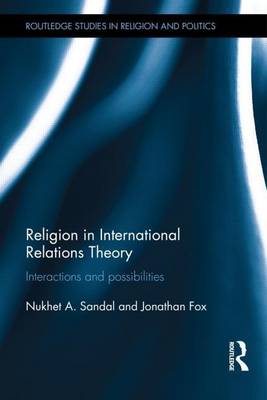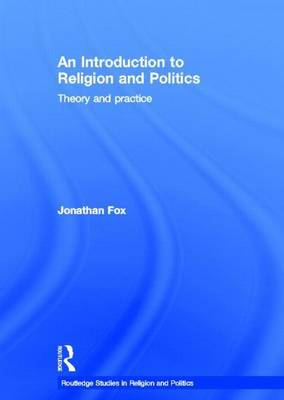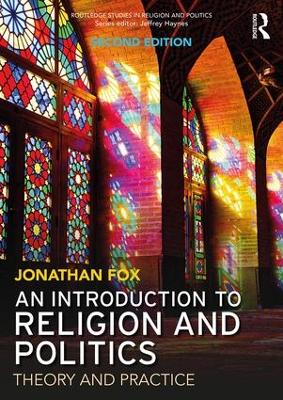Routledge Studies in Religion and Politics
3 total works
Religion in International Relations Theory
by Nukhet Sandal and Jonathan Fox
There is a growing realization among international relations scholars and practitioners that religion is a critical factor in global politics. The Iranian Revolution, the September 11 attacks, the ethno-religious conflicts such as the ones in the former Yugoslavia and Sri Lanka are among the many reasons for this increased focus on religion in international affairs. The rise of religious political parties across the world ranging from the Christian Democrats in Europe to Bharatiya Janata Party in India similarly illustrated religion's heightened international profile.
Despite all this attention, it is challenging to situate religion within a discipline which has been dominantly secular from its inception. Only a few existent works have ventured to integrate religion into core international relations theories such as Classical Realism, Neorealism, Neoliberalism, Constructivism and the English school. This work is the first systematic attempt to comparatively assess the place of religion in the aforementioned theoretical strands of international relations with contemporary examples from around the world.
Written in an accessible and systematic fashion, this book will be an important addition to the fields of both religion and international relations.
Nukhet A. Sandal is Assistant Professor in the Political Science Department at Ohio University.
Jonathan Fox is Professor in the Department of Political Studies at Bar Ilan University, Israel.
Introduction to Religion and Politics, An: Theory and Practice
by Jonathan Fox
This fully revised edition offers a comprehensive overview of the many theories of religion and politics and provides students with an accessible, in-depth guide to the subject's most significant debates, issues, and methodologies.
It begins by asking the basic questions of how social scientists see religion and why religion remains relevant to politics in the modern era. Fox examines the influence of religious identity, beliefs, institutions and legitimacy on politics, and surveys important approaches and issues found in the literature on religion and politics. Four new chapters on religious policy around the world, political secularism, and religious freedom and human rights have been added to fully revised content covering religious identity, rational choice approaches to religious politics worldviews, beliefs, doctrines, ideologies, institutions and political mobilization, fundamentalism, secularization, and religion and conflict.
This work will be essential reading for all students of religion and politics, comparative politics, international relations, and security studies.


